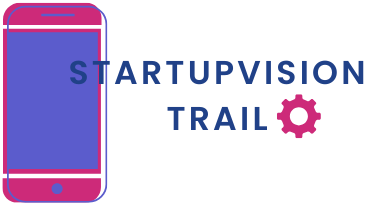Table of Contents
ToggleIn a world where software is just a click away, SaaS companies have become the superheroes of the tech universe. They swoop in to save the day, offering solutions that make life easier, more efficient, and a whole lot more fun. From managing your emails to organizing your finances, these cloud-based champions have transformed how businesses operate.
Overview of SaaS Companies
SaaS companies offer cloud-based software solutions that streamline business processes. Numerous industries utilize SaaS products, benefiting from the flexibility and cost-effectiveness these services provide. Businesses often rely on these platforms for various needs, such as project management, collaboration, and customer relationship management.
Companies like Salesforce, known for its CRM software, exemplify successful SaaS implementation. Zoom, another notable player, revolutionized communication with video conferencing tools. These platforms enable real-time collaboration regardless of location.
Investors see the growth potential in SaaS companies, as subscription-based revenue models offer stable income streams. According to Statista, the global SaaS market size reached approximately $145 billion in 2021, with projections indicating substantial growth. This landscape attracts startups and established enterprises alike, driving innovation in software development.
Emerging technologies around artificial intelligence and machine learning further enhance the capabilities of SaaS offerings. Companies like Slack integrate these technologies to improve workflow management and facilitate seamless communication among teams. The ability to adapt quickly to changing market demands keeps SaaS providers competitive.
Security remains a crucial aspect, as companies prioritize data protection. Many SaaS providers invest heavily in cybersecurity measures, ensuring customer information remains safe. This builds trust and establishes long-term relationships between businesses and their software providers.
The SaaS model reshapes how organizations approach technology. The convenience of accessible software, coupled with robust security measures, underscores the growing reliance on SaaS solutions.
Real-World Examples of SaaS Companies
Numerous SaaS companies thrive today, demonstrating the model’s effectiveness across various sectors.
Leading SaaS Companies
Salesforce stands out as a top CRM platform, allowing businesses to manage customer relationships seamlessly. Zoom transformed how teams communicate, offering reliable video conferencing tools that support real-time collaboration. Microsoft 365 provides comprehensive office applications in the cloud, enhancing productivity and team collaboration. Slack has created a centralized hub for team communication, promoting efficient workflows among remote workers. Adobe Creative Cloud enables access to industry-leading design tools via subscription, catering to creatives globally.
Emerging SaaS Players
Notion has gained traction for its versatile workspace, combining note-taking with project management features. Airtable stands out due to its user-friendly interface, enabling teams to customize databases easily. monday.com delivers an intuitive platform for project tracking, enhancing visibility into project progress. Canva simplifies graphic design with its comprehensive toolset, catering to both professionals and amateurs. Asana enhances task management through tailored workflows, empowering teams to meet deadlines effectively.
Benefits of Using SaaS Solutions
SaaS solutions provide numerous advantages that significantly enhance operational efficiency. Scalability stands out as a primary benefit. Businesses can adjust their usage based on specific needs, ensuring resources align with projects.
Cost-effectiveness also plays a crucial role. Subscription-based models eliminate large upfront investments, allowing businesses to allocate funds to other areas. This pricing structure helps startups and established enterprises manage budgets more effectively.
Flexibility remains essential for modern businesses. SaaS platforms offer access from various devices, enabling teams to work remotely and collaboratively without geographical constraints. Cloud storage allows for real-time updates, ensuring everyone stays on the same page.
Integrating SaaS with existing tools streamlines workflows. Many SaaS products, such as Salesforce and Slack, seamlessly connect with various apps, enhancing productivity. Integration capabilities reduce manual data entry and the chances of errors.
Security received significant attention from SaaS providers. Industry leaders prioritize robust cybersecurity measures, ensuring data protection and compliance with regulations. This focus fosters trust between providers and users, contributing to stable relationships.
Support and maintenance also improve efficiency. SaaS companies handle software updates and technical issues, allowing businesses to concentrate on core activities. This proactive approach saves time and reduces potential downtimes.
Access to advanced features enhances functionality. Companies frequently include updates that utilize emerging technologies like artificial intelligence and machine learning. This incorporation keeps businesses competitive, enabling them to leverage innovative solutions effectively.
Overall, the benefits of SaaS solutions are evident in their ability to improve productivity, cut costs, and provide flexibility in an increasingly digital world.
Challenges Faced by SaaS Companies
SaaS companies encounter various challenges that can impact their operations. Competition remains a significant hurdle, as numerous startups and established firms vie for market share. Pricing pressure from competitors often leads to reduced margins, requiring strategic decisions to maintain profitability.
Customer retention poses another challenge. Subscriptions are easily canceled, prompting companies to prioritize customer satisfaction through continuous improvements and support. Ensuring product quality and user experience can influence a customer’s decision to stay.
Data security is a critical concern for SaaS businesses. Breaches can damage a company’s reputation and customer trust, compelling continuous investments in advanced cybersecurity measures. Compliance with regulations, such as GDPR or HIPAA, adds complexity to security strategies, necessitating vigilance and adaptability.
Scalability presents both opportunities and challenges. Rapid growth can strain resources, leading to potential service outages if not managed effectively. Companies must anticipate infrastructure needs based on user growth to ensure seamless experiences.
Integration with existing systems can create obstacles. Not all businesses operate a tech profile that aligns with specific SaaS offerings. Compatibility issues might require additional development resources or lead to reduced functionality in critical areas.
Talent acquisition also emerges as a challenge. Attracting skilled professionals in a competitive market can be difficult, affecting the ability to innovate and meet customer expectations. Companies often invest in training programs to develop existing staff while seeking external talent.
Finally, maintaining a continuous flow of innovation is vital. Customers expect ongoing feature updates and improvements. Failing to innovate can result in losing relevance, as users migrate to competitors offering more advanced solutions.
SaaS companies are reshaping how businesses operate by offering innovative solutions that enhance efficiency and productivity. Their ability to provide flexible and cost-effective services makes them indispensable in today’s digital landscape. As the market continues to grow and evolve, these companies are not just meeting current demands but also paving the way for future advancements.
With a focus on security and integration, SaaS providers are building trust and fostering long-term relationships with customers. As technology progresses, the potential for SaaS offerings will only expand, ensuring that businesses can adapt and thrive in an ever-changing environment. The journey of SaaS is just beginning, and its impact on various industries will be profound.





